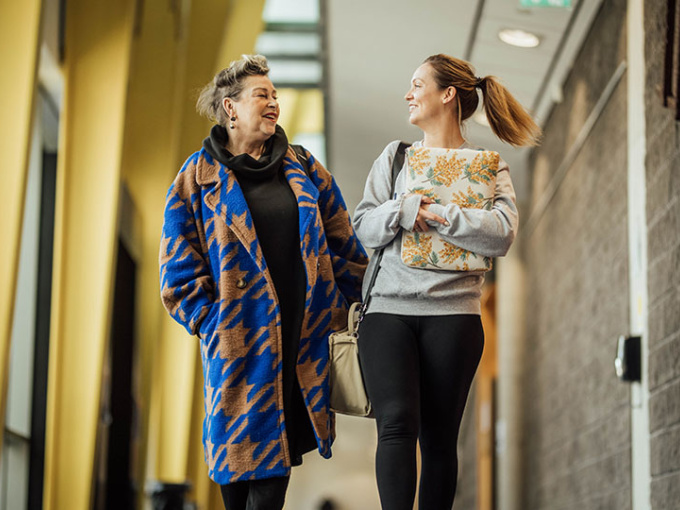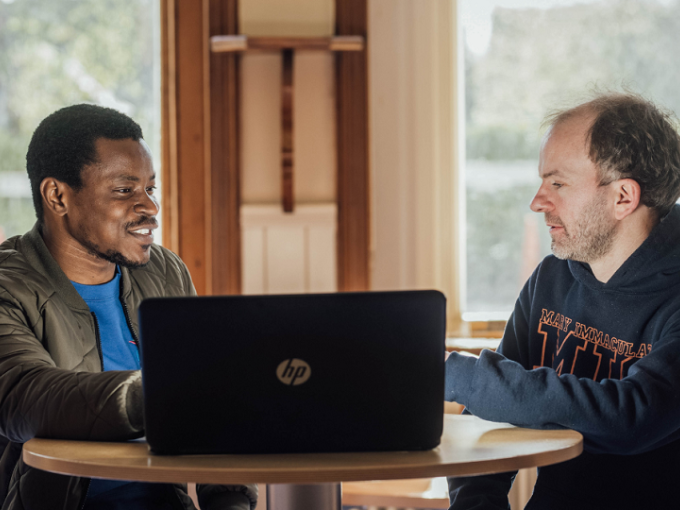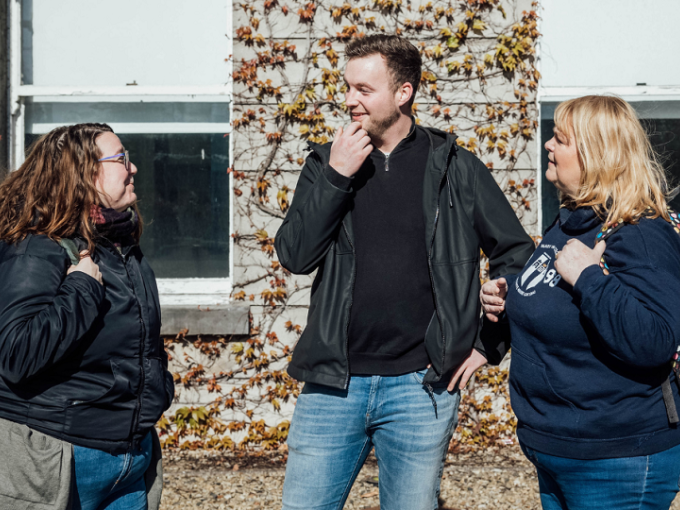Mature Students
It’s never too late for third-level! If you are over the age of 23, you can return to education as a mature student and fulfil your dream of a college degree. Here at MIC, we offer alternative routes to higher education and are committed to improving access to education for all.
Where do I start?
Whether you are 25 or 55, there’s a pathway to college for you! Maybe you left school at 16 to take up employment or took a few years away from the books after your Leaving Certificate to decide on the right degree for you. Whatever your reason for returning to education, there is a place for you at MIC.
If you are hoping to attend MIC this September to study on one of our undergraduate programmes, the first step you need to take is to fill in your CAO application by 1 February 2025. You must be over the age of 23 on or before 1 January 2025 to be eligible to apply as a mature applicant. The Mature Applicant Form, which is part of the CAO application form, must also be completed by 1 March.
Here at MIC, we also accept late CAO applications from mature learners up to 1 May but please note, we only accept late applications for some and not all of our programmes. The list of undergraduate programmes open for late application will be announced in April.


Pre-University Programme
Here at MIC, we also have non-CAO courses, which are a stepping stone to undertaking undergraduate study. If you’ve been out of education for some time, you may want to consider MIC’s Pre-University Programme, which is designed for anyone over the age of 22 who would like to continue their education.
This programme is perfect for anyone who would like to get a taste of third-level and is an alternative progression route to college. You will get to sample subjects such as History and Philosophy, which are available on our Bachelor of Arts programme. You will also develop the necessary skills required for third-level success, including Academic Writing.
Upon successful completion of the programme, students will receive a Special Purpose Award, and may choose to then pursue an undergraduate degree at MIC. While the programme is open to anyone over the age of 22, MIC really welcomes applications from under-represented groups in society, such as those from the Travelling Community, single parents, migrants, those who may be experiencing unemployment, or those from areas of disadvantage.
Teacher Education Access Programme
If you’ve always dreamt of becoming a primary school teacher but didn’t get the minimum entry requirements for our Bachelor of Education programme, there is another route to studying primary teaching at MIC. Our Teacher Education Access Programme is a non-CAO course which offers an alternative pathway to MIC's Bachelor of Education programme.
The H4 in Irish, which is required for studying primary teaching in Ireland, can be a difficult hurdle for many but this is where MIC’s Teacher Education Access Programme can help. The programme is aimed at anyone over the age of 22 and Gaeilge at Leaving Certificate is offered as part of this one-year part-time programme. You will also get the opportunity to spend time in a school setting observing and participating in the life of the school.
Upon successful completion of the programme, participants will be offered a place on our four-year Bachelor of Education programme, which qualifies graduates as primary school teachers.

The Mature Student Experience at MIC
My MIC Story
Hi! My name is April and I’m a mature student here at MIC. I’m now in my second year of the Bachelor of Science in Psychology programme.
After having my three boys, I knew I wanted a career in Psychology. Parenting neurodivergent children can sometimes feel like you are running backwards – going places yet getting nowhere. The better I became at supporting their needs the more I realised it was where I excelled.
It’s a juggle not a struggle! It’s tough, I’d be lying if I said it wasn’t but MIC is a lovely small close-knit college, and help is always there when I need it. Lecturers are very understanding that my main commitment is to my family, college comes after. I honestly don’t believe that support would be possible in a bigger college where the student population is greater.




